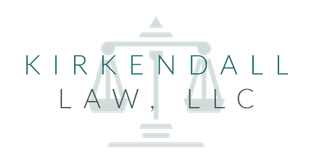Elder Law And Guardianship
WHAT IS ELDER LAW?
Elder law is legal life care planning that ensures the needs of an individual are addressed from a multidisciplinary perspective. Elder law includes the following range of services:
- Estate planning and the use of durable powers of attorney, living trusts, wills and strategies to protect your assets
- Medicaid planning
- Financial planning for long-term care and use of long-term care insurance
- Health care decision-making and use of advance directives
- Guardianships and conservatorships for those no longer able to care for themselves
GUARDIANSHIPS AND CONSERVATORSHIPS
A guardian is a court-appointed fiduciary who makes decisions regarding the personal affairs of an individual who no longer has the capacity to make those decisions. These decisions include where a person lives, their medical care and other personal decisions. A conservator fills a similar role in making decisions regarding management of the incapacitated person’s finances.
The decision to initiate a protective proceeding is often a difficult one because most people are reluctant to interfere with their loved one’s independence. Once the decision is made, it may be helpful if a trusted family member is willing to take on the job. But there are times when a neutral professional fiduciary may be a better choice. Each family is different.
In order to appoint a guardian for an adult, the court must find that the person is "incapacitated," that is the person has impairment which affects their ability to receive and evaluation information or to communicate decisions to the extent that they lack capacity to meet requirements for physical health or safety. To "meet requirements for physical health or safety" means actions necessary to provide health care, food, shelter, clothing, personal hygiene and other care without which serious physical injury or illness is likely to occur.
In order to appoint a conservator for an adult, the court must find that the person is "financially incapable," meaning the person is unable to manage their financial resources effectively for reasons such as mental illness, mental deficiency, physical illness or disability, chronic use of drugs or controlled substances, chronic intoxication, or confinement.
Until a court legally determines that the individual is incapacitated, that person retains all of their rights and their decision-making abilities.
SCHEDULE YOUR INITIAL CONSULTATION
Our firm is here for you with cost-effective, caring advice. Explore your legal options for any situation with confidence and an experienced attorney. To arrange a meeting to speak to our attorney about guardianships or elder law, call (503) 308-1438 or send us a message through our website.
QUICK LINKS
*No Legal Advice or Attorney-Client Relationship: The materials available at this website are for informational purposes only and not for the purpose of providing legal advice.

